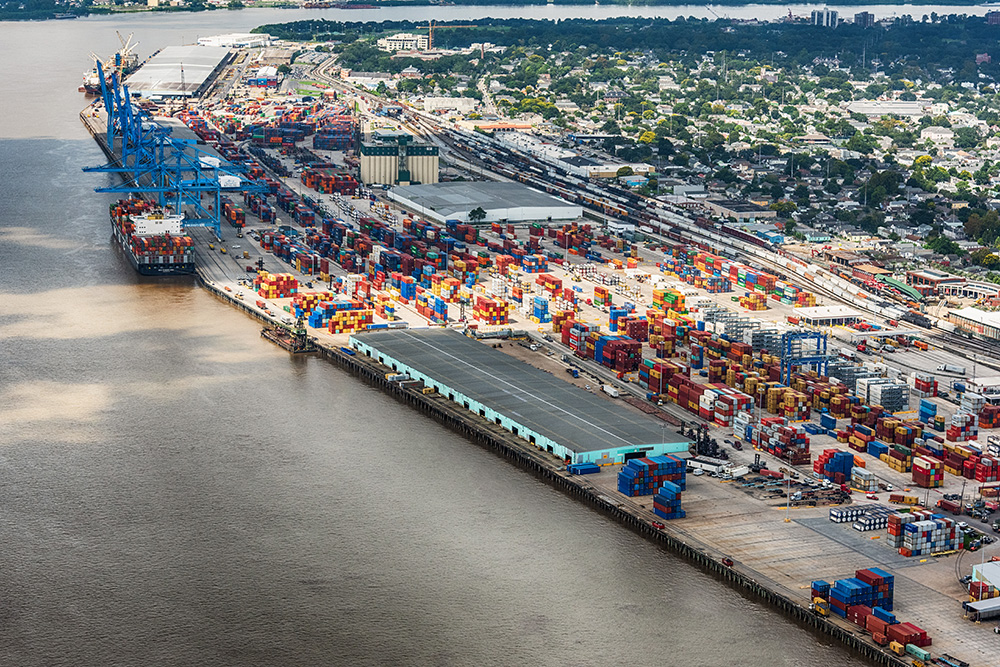Introduction
International trade is a complex field that is subject to numerous rules and regulations. Many transactions require the involvement of financing partners to ensure that cross-border orders are fulfilled in a timely manner and the seller receives its cash fast, allowing it to optimize its working capital.
Import/export financing options include factoring—the sale of outstanding invoices at a discount—and purchase order financing. Supply chain financing—factoring initiated by the buyer—might be a good option as well, but the supplier’s management team should very carefully consider the terms of a supply financing agreement to ensure that it is not being taken advantage of.
All three options are discussed below.
Factoring
Import and export factoring – also known as invoice or accounts-receivable factoring – is the sale of outstanding invoices (accounts receivable) at a discount to a factoring company (like Business Factors) or a bank. The discount typically ranges from 1% to 5%, along with other fees a factor may charge for its services. Factoring is a convenient way to monetize invoices as soon as the product is delivered without having to wait for 30 or 60 days for the client to pay.
Factoring can be done on a recourse or non-recourse basis. In recourse factoring, a seller of goods submits an invoice to its buyer to a factor. The factor advances a part of the invoice (usually between 70% and 96%) for a specified time period. When the time has passed, if the buyer of the goods (referred to as account debtor) has not paid the invoice, the seller must repay the advance or replace the invoice with another one that has a higher probability of getting paid.
Most factoring companies offer recourse factoring. By contrast, Business Factors exclusively offers non-recourse factoring. In non-recourse factoring, if the invoice is not collected, the factor absorbs the loss. A factor buying invoices in such a manner will always run a credit check on the account debtor before agreeing to advance the money.
Factoring relies on the creditworthiness of the account debtors (the parties who are expected to pay the invoices), making it a good option for importers and exporters that have short or problematic credit histories.
“Business Factors exclusively offers non-recourse factoring. In non-recourse factoring, if the invoice is not collected, the factor absorbs the loss. A factor buying invoices in such a manner will always run a credit check on the account debtor before agreeing to advance the money.”
How does factoring work?

The importer/exporter gives the factor a copy of the invoice that was sent to the client.
An import/export factoring transaction has four steps:
- The importer/exporter gives the factor a copy of the invoice that was sent to the client.
- The factor verifies the invoice and runs a credit check on the client.
- The factor advances a portion of the amount of the invoice to the importer/exporter. The remaining amount is called the reserve.
- Once the invoice is paid, the factor subtracts the discount and any additional fees and sends the remainder of the reserve to the importer/exporter. The discount and fees are the cost of factoring.
Here is an example of a factoring transaction:
- Invoice amount: $10,000
- Advance rate: 90%, or $9,000
- Reserve: $1,000, or 10%
- Discount rate: Monthly fee of 2.19%, or $219
- Type of arrangement: Non-recourse
In this example, an importer sells a $10,000 invoice from its foreign client to a factoring company. The factor advances $9,000 upfront and charges $219 per month for its services. If the invoice is paid after two months, the factor charges $438 and refunds the rest of the reserve ($562) to the importer.
What are the advantages of working with Business Factors?
The advantages of factoring with Business Factors are as follows:
- The ability to try out factoring with no long-term commitment under our spot factoring program
- No monthly minimums or upfront fees
- Simple credit qualifications
- Advances of up to 96% of the invoice face amount, depending on the industry
- Fast, easy setup
- Over 20 years of experience in the freight, telecom, oil and gas, and payroll and staffing industries
- Low fees and complimentary credit checks on your clients
- Available 24/7, 365 days a year
While it is easier for us to finance transactions coming into North America, we will look at factoring invoices in other developed countries. Please contact us today to discuss your particular situation.
Supply-chain financing
Supply-chain financing, like factoring, is the sale of invoices to a third party, such as a factoring company or a bank. Unlike factoring, however, a supply-chain financing transaction is initiated by the buyers (account debtors). This can result in lower fees to the supplier as compared with factoring transactions. However, suppliers should carefully review the terms of such agreements to ensure that they are not signing something that can have an adverse impact on their business. Some agreements have terms that:
- Require disclosure of confidential business information
- Restrict the number of invoices that can be cashed per month
- Require that suppliers finance all of their invoices, even ones from other customers
- Are hard to understand
If importers and exporters don’t want to be bound by such provisions, factoring may be a good alternative, one that can preserve the integrity of their businesses and keep them from getting entangled in overly-restrictive agreements. To learn more about factoring, please visit our Frequently Asked Questions page or contact one of our experts today.
“Suppliers should carefully review the terms of supply-chain financing agreements to ensure that they are not signing something that has an adverse impact on their business or requires disclosure of confidential business information.”
Purchase-order financing

Purchase-order financing is a way for resellers who lack cash flow to pay their suppliers to fulfill large orders.
Purchase-order financing is a way for resellers who lack cash flow to pay their suppliers to fulfill large orders. As described on our Purchase Order Financing page, the PO financing company pays the supplier to deliver the goods to the reseller’s end customer. The end customer then pays the PO financing company directly. The PO financing company deducts its fees and sends the rest to the reseller.
A sample cross-border PO transaction could work as follows:
- A reseller gets a purchase order from an overseas or domestic customer.
- A PO financing company verifies the order and agrees to cover all or a part of the reseller’s costs.
- The PO financing company issues a letter of credit (L/C) to the reseller’s supplier or pays for the order directly.
- The supplier ships the goods to the end customer.
- The customer pays the PO financing company within the allotted time frame (such as 60 days).
- The PO financing company subtracts its fees and sends the reseller the remainder of the payment.
To be eligible for PO financing, transactions should be non-cancelable, recurring and not guarantee or consignment sales. They should have a margin on at least 20%, be for at least $50,000 and represent the purchase of finished goods rather than materials or items to be used in further manufacturing.
For more information on requirements, please refer to our Purchase Order Financing page.
Conclusion
Import and export financing options include factoring, supply-chain financing and purchase-order (PO) financing.
Import/export factoring is the sale of outstanding accounts receivable at a discount to a third party such as Business Factors. We offer non-recourse factoring where we absorb the loss if the invoice is not paid. While it is easier for Business Factors to finance transactions into North America, we will also consider invoices to companies in other developed countries. To get a quote or talk about your particular situation, contact one of our executives today.
Purchase order financing—where a PO financing company pays a reseller’s supplier to fulfill a large order—is another alternative for cross-border transactions. PO financing is initiated by resellers who lack cash to fulfill large orders from their customers. It can be a good choice if the underlying transaction meets certain requirements.

Improve Your Cash Position
Get a Risk-Free quote from Business Factors for immediate working capital and 24/48 hour invoice factoring



